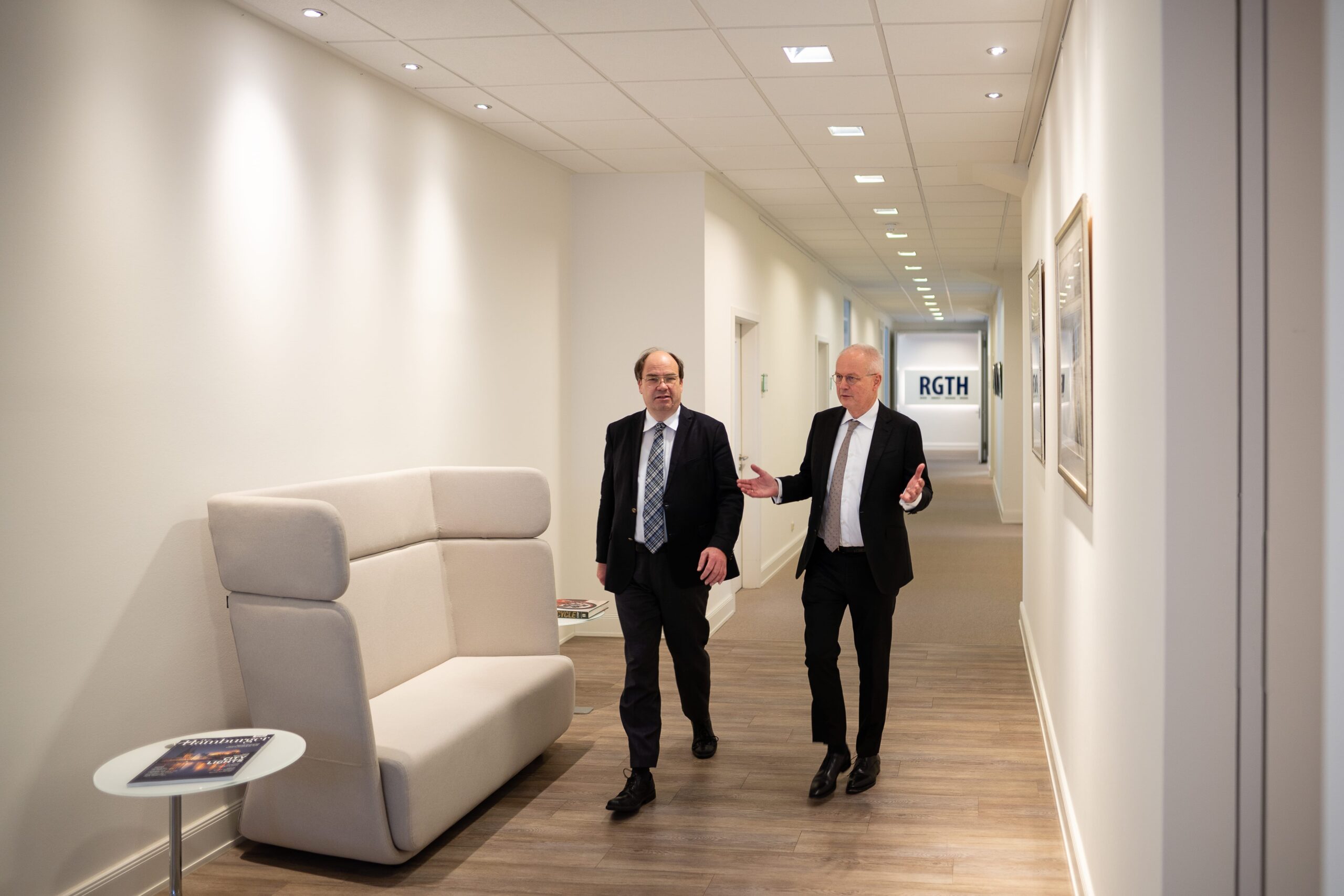
Employee invention law
Most inventions are made by employees at their workplace. If these service inventions are related to the employee’s work, they can be claimed by the employer in Germany and property rights can be registered. The inventor, in turn, is entitled to compensation in such a case under the Employee Invention Act. The attorneys at RGTH help our clients to understand the legal requirements and to ensure legal certainty with regard to employee inventions in their own companies.
What is a service invention?
A service invention differs from a free invention in that it has a connection to the contents of the job. If an employee invents something at work or even at home that is related to the contents of the employment relationship, then it is legally a service invention.
The free invention, on the other hand, has nothing to do with the employment relationship. Accordingly, it does not count as a service invention, but can be directly exploited and patented by the employee, as it belongs to him.
Utilisation by the employer
Basically, inventions belong to the inventor, which is why employee invention law regulates how a service invention is dealt with. In the case of service inventions, the employer usually has an interest in the invention that was made during the employment relationship. For this reason, employees must report their service invention to the employer. The employer can then decide within four months whether to leave the service invention to the employee (release the invention) or to claim the invention for itself. If the employer does not make an active decision, the rights to the employee invention automatically pass to the employer after the deadline.
Subsequently, the employer must decide on the next steps.
Either the invention is registered as a patent, utility model or other industrial property right, or the invention is treated as a trade secret.
Regardless of the next steps, the employer is usually obliged to remunerate the original inventor, i.e. the employee, for the invention to the extent that the employee benefits from the invention.
In addition, employers should be aware that employees themselves can register IP rights for their service inventions in countries in which the employer has not registered its own IP rights and will not register them in the future. Employers must explicitly release these countries, otherwise employees may be able to claim damages. In the case of foreign applications by employees, employers can be granted a so-called right of joint use for a fee.
Remuneration for employee inventions
The inventor is entitled to appropriate remuneration for the entire term of the IP right. Exceptions to this can be concluded in the form of lump-sum remuneration. The amount of the remuneration for service inventions is based on the remuneration guidelines, e.g. according to the so-called licence analogy. Various factors play a role in determining the amount of remuneration, e.g. the share of the service invention in existing or future products of the company, its turnover, the industry and the employee’s position in the company.
In addition to the license analogy, remuneration systems can be established in companies and these can already be recorded in the employment contract. In this way, employers ensure legal certainty in advance, taking into account employee invention law.
Our patent attorneys at RGTH discuss with our clients which provisions are possible in the employment contract and which remuneration is appropriate in the case of a service invention.
Arbitration Board for Employees’ Inventions
If a dispute doesarise, for example, because the employee wants to assert (higher) claims for remuneration, our clients can have the dispute settled by our experienced patent attorneys before the Arbitration Board for Employee Invention Cases of the German Patent and Trade Mark Office (DPMA) out of court or before the district courts.
Under the Employee Invention Act, the Arbitration Board serves to settle differences of opinion in the case of an employee invention between employer and employee. Its aim is to come to an agreement, mostly with regard to the appropriate remuneration for the inventor in the case of commercial use or patent application by the employer. Representation by a patent attorney is important here for both the employee and the employer to be able to adequately represent the relevant interests and reach a fair agreement.
The Arbitration Board consists of three persons who attend the arbitration: a lawyer as chairman and two patent examiners who are trained in the technical field of the subject matter of the dispute. Together they draw up settlement proposals, which both parties can accept or reject. In addition, it is possible for the two parties to reach an agreement on their own.
Our services around employee invention law
- General legal advice onemployee invention law
- Strategic advice to employers on employee invention processes
- Drafting agreements between employee inventors and their employers
- Determination of the employee compensation
- Representation in employee invention proceedings before the Arbitration Board under the Employee Inventions Act and before the ordinary courts
Our patent attorneys for employee invention law
Service inventions and employee invention law are complex, but our competent patent attorneys at RGTH provide professional advice to our clients. Thanks to years of technical and legal experience in some cases, they bring not only theoretical, but also practical knowledge to the table.
